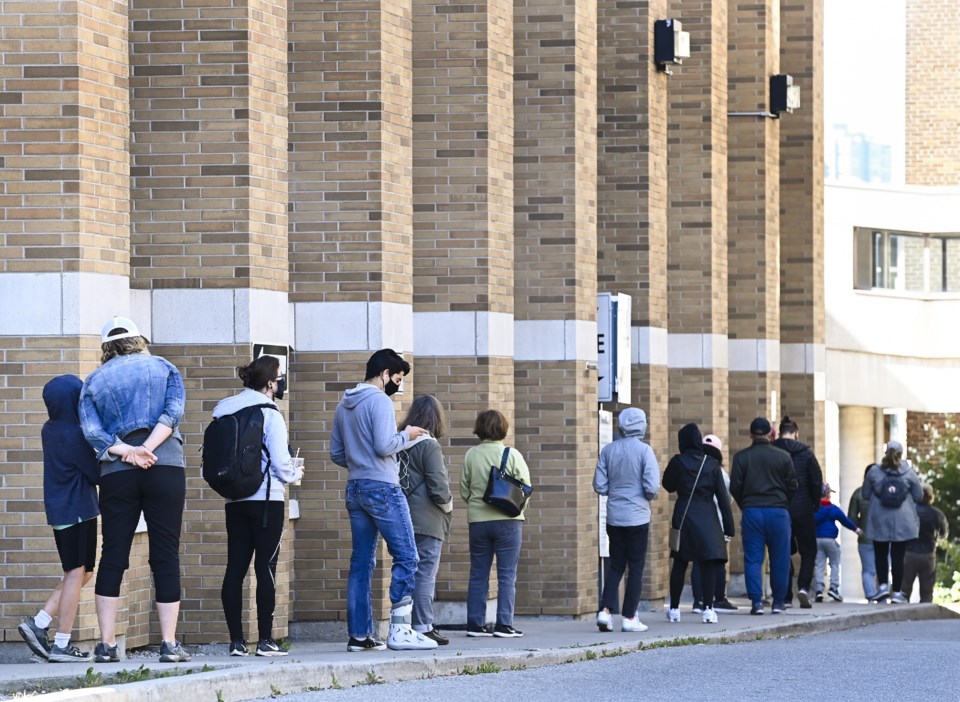When Toronto Public Health announced this weekend that it was temporarily suspending its contact tracing efforts in the city, many wondered what impact that could have on a rapidly growing pandemic.
How effective has contact tracing been in curbing the spread of COVID-19 to this point? And what happens now in Canada's largest city, where daily COVID cases hit 201 on Tuesday.
While public health experts say case and contact management is just one step of a multi-faceted approach at slowing the spread of the virus, it is an important one. And limiting it could be dangerous.
Dr. Zain Chagla, an infectious disease specialist with McMaster University, likened contact tracing to an airplane's navigation system, helping map out the spread of the virus to avoid outbreaks.
"If you're flying into a storm, you can usually get through it as long as you've got that navigation system," Chagla said. "But if you're flying into the storm without a navigation system, you're going to be left with a wreck at the end of this."
Toronto Public Health's decision came as a result of an overwhelming number of positive tests over the past weeks. The health unit says it will still undergo contact tracing in congregate settings such as long-term care homes.
The process of contact tracing involves first calling the positive case and interviewing them to find anyone they've been in contact with, starting at 48 hours before symptom-onset, Chagla says. Calls are then made to those individuals to tell them they've been exposed — without divulging who has exposed them — and they're asked to self-isolate, whether or not they have symptoms, or get tested if symptoms are present or the contact tracer deems them to be at higher risk.
If the infected person had been to a business, like a restaurant or gym, in that timeframe, the contact tracer would call those establishments to try to find out who had been there around the same time, and then call those people as well.
Dr. Fatemeh Alsadat Sabet, a public health resident at the University of Calgary, says the process can be long and arduous.
"Sometimes because of the complexity of the situation, it takes longer," she said. "Individuals who attend multiple social gatherings or go to work when they are in the infectious period, it takes more time."
That time commitment usually pays off, however. Contact tracing has been helpful in preventing the pandemic from spiraling in Canada when it can quickly pinpoint cases that have spawned from previous interactions, Chagla says.
But rising cases impact the ability of contact tracers to do their jobs, says Dr. Jeff Kwong, the interim director at the Centre of Vaccine and Preventable Diseases at the University of Toronto.
While contact tracing was easier to do in the spring when lockdown measures limited social gatherings, that's no longer the case.
"You can imagine a person who may have gone to restaurants or bars in the past X number of days," Kwong said. "They could have dozens or maybe even hundreds of contacts over that period."
Contact tracing is only one of "a bunch of pieces that need to be in place for effective controls," he said.
Quick and readily available testing and swift turnaround for results is also important, Kwong added, and not having those leads to other problems. People might put off getting tested if lines are too long, holding up results and contact tracing efforts even further.
"At each stage, there's delays," Kwong said. "So (contact tracing) is only helpful if you can catch the contact early enough, before they start infecting other people."
With contact tracing suspended in Toronto, individuals who test positive there will be responsible for telling their close contacts themselves.
While Chagla says this "honour system" will work in certain situations, it won't in others.
There can be stigma associated with contracting COVID, with the assumption that someone's own reckless behaviour is to blame for acquiring the infection. That will make it hard for some to admit they have the virus — and worse, that they may have spread it.
"We know from the sexual health world where we see STDs, it's hard for people to contact their prior contacts," Chagla said. "Similarly it may be very difficult for people to admit to their workplaces: 'yeah I'm sick' and face negative consequences.
"So there are a lot of (situations) where contact tracing is not going to be done appropriately or to a significant degree."
Notifying contacts can be made easier by the COVID Alert App, which anonymously pings individuals to let them know they've been exposed.
But Chagla says that system also isn't perfect — it requires everyone to have the app and Bluetooth on their phones, and positive cases need to enter in their result in order to notify others. The app is also not being used in parts of the country, including B.C. and Alberta.
Chagla says other places in Canada could find themselves in the same situation as Toronto, with rapidly growing case numbers. That could be especially dangerous in smaller cities that don't have a large base of contact tracers to begin with.
Kwong says people can help ease pressure on public health units by limiting their contacts.
But if they choose to go out, keeping a log of places they're going and people they're seeing will be useful if they have to hand that over to a contact tracer or notify those people themselves, he added.
"The bottom line is we need to reduce our social circles," he said. "If we stay at home, wear a mask when we go out and minimize the interactions with people outside of our homes, we can stop the spread of the virus."
This report by The Canadian Press was first published Oct. 6, 2020.
Melissa Couto Zuber, The Canadian Press



